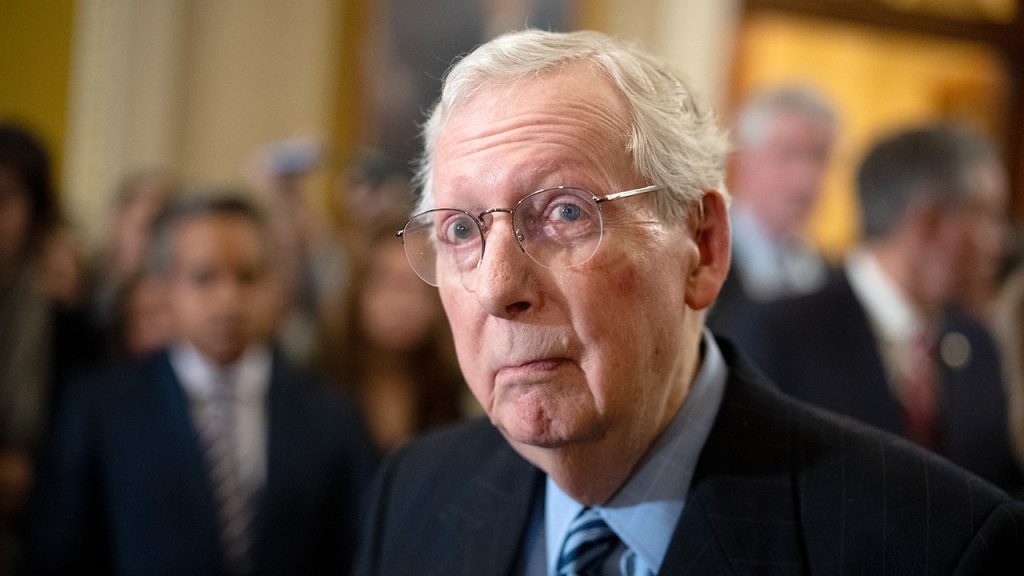Donald Trump’s anticipated return to the White House has ignited speculation about his foreign policy agenda. While some anticipate a resurgence of his “America First” approach, others, including Senate Minority Leader Mitch McConnell, advocate for a robust international presence backed by increased military spending. This divergence of views sets the stage for a potential clash between isolationist tendencies and the desire to maintain America’s global leadership role.
Trump’s “America First” philosophy, as interpreted by analysts like J. Michael Waller, centers on prioritizing national interests without automatically intervening in every global crisis. This approach contrasts with what some perceive as the Biden administration’s overextension in foreign affairs. However, critics argue that a strict adherence to “America First” could lead to isolationism and a weakening of America’s global influence.
McConnell, a strong proponent of American leadership abroad, has publicly called for significant increases in defense spending to bolster the nation’s “hard power.” He believes that a strong military is essential to deterring adversaries and maintaining stability in a complex world. He argues against an isolationist approach, emphasizing the interconnectedness of global challenges and the need for American engagement to protect its interests.
The debate over the appropriate level of American involvement in global affairs highlights a fundamental tension within the Republican party. While some, like McConnell, favor a continued commitment to international leadership, others are drawn to Trump’s more nationalistic approach. This tension will likely play out in the coming months as Trump assembles his foreign policy team and articulates his priorities.
Trump’s selection of Senator Marco Rubio as Secretary of State offers some clues about his potential foreign policy direction. Rubio’s skepticism about the extent of US involvement in the Ukraine conflict, mirroring Trump’s own calls for a ceasefire and negotiations, suggests a potential shift towards a less interventionist stance in certain regions.
Furthermore, Trump’s pronouncements on hostage releases in the Middle East signal a willingness to use strong rhetoric and potentially forceful measures to protect American citizens abroad. His focus on specific issues like hostage situations and the Ukraine conflict, rather than broad pronouncements on global leadership, suggests a more transactional approach to foreign policy, prioritizing concrete outcomes over abstract principles. This tactical approach, while potentially effective in certain situations, may not address the larger strategic challenges facing the United States in an increasingly complex international environment.
The upcoming Trump administration’s foreign policy will likely be a blend of “America First” principles, strategic engagement in areas deemed vital to national interests, and a transactional approach to specific crises. The potential for friction between this approach and the more traditional internationalist views within the Republican party, represented by figures like McConnell, remains a significant dynamic to watch as Trump’s second term unfolds. The tension between these two perspectives could shape the United States’ role in the world for years to come.

